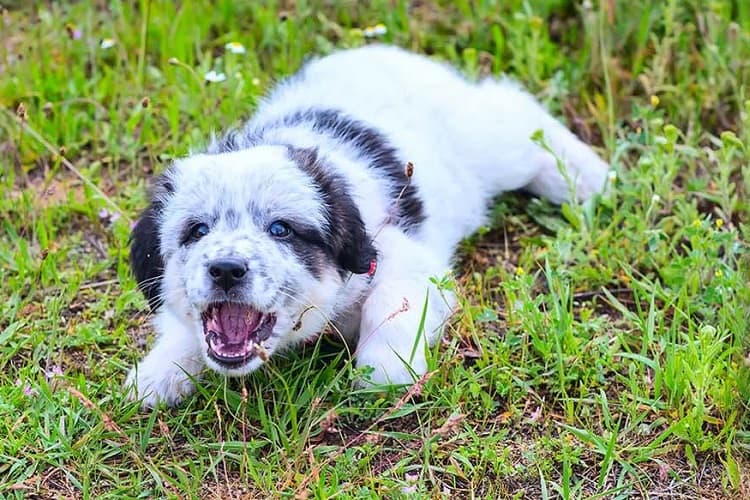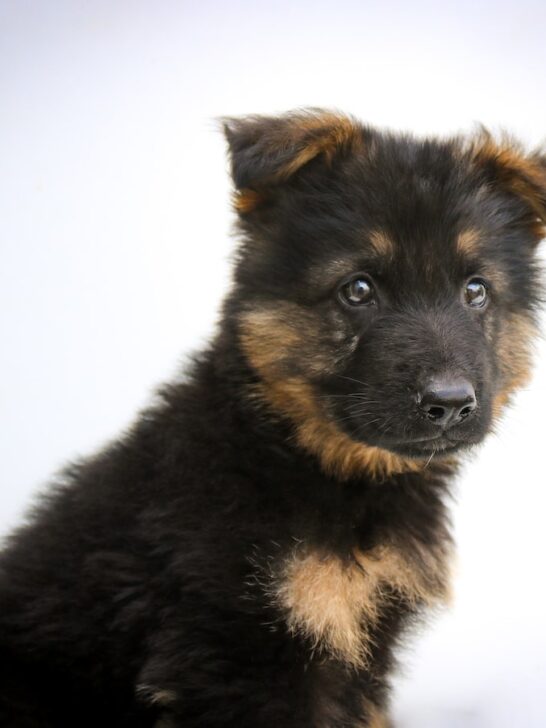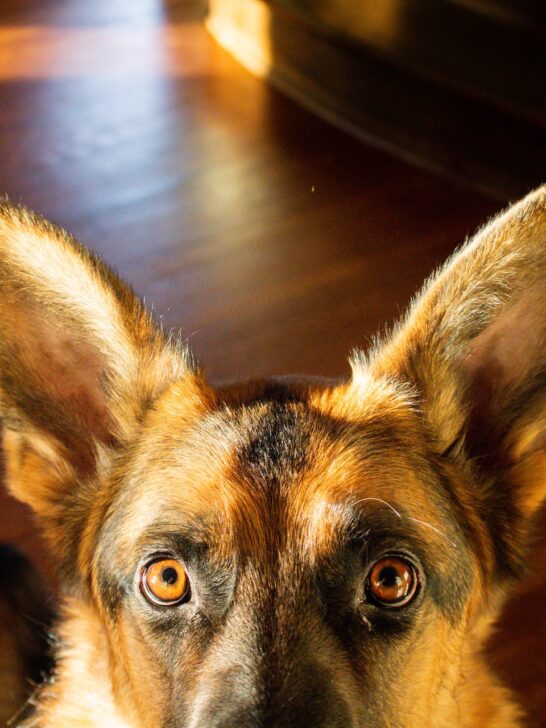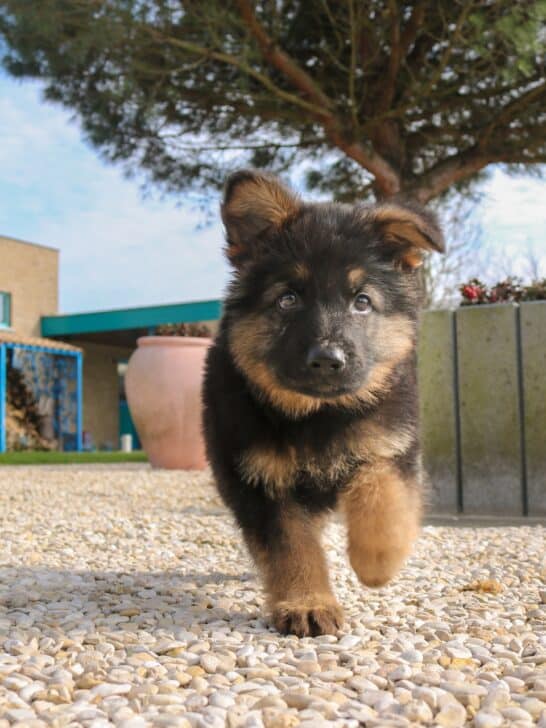When Do Puppies Start Barking?
Everyone knows that dogs bark, so it can be very startling for many first-time puppy owners to realize that young pups don’t have a bark of their own yet.
Your puppy will make a range of small vocalizations. Some breeds may even start an adorable attempt at a howl, but it takes a while for their proper adult bark to mature.
Some puppies may never be big barkers at all, and it can depend on the breed. Today, we’ll talk about barking and everything you need to know about it.
When Do Puppies Bark for The First Time?

Puppies will grunt, whine, and make other little noises from about two weeks old. They only start to bark properly between 7-16 weeks of age.
Some pups bark early at about six weeks; by eight weeks, most puppies will absolutely find their voices.
Puppies will make very little noise until their eyes open, for safety reasons. In the wild, they stay quiet to deter potential danger or predators from finding a helpless litter.
Once they’re more able to fend for themselves, they start communicating with littermates and mom through softer noises.
Canine communication is surprisingly complex. It’s not like they can send a text message, after all! Despite this benchmark, it’s possible they may not start barking at all.
There’s some evidence that barking is a learned behavior, and dogs that aren’t taught to bark by an older dog may never realize they have the ability.
Their individual temperament and the overall breed disposition also come into play. Some dog breeds are very quiet by nature, while others lean towards howling over barks. This can depend on the reasons the dog was bred to start with.
Many hunting breeds are quiet by nature to avoid scaring game, and some individual dogs just don’t seem to care for it as much as others.
As with all skills, barking needs to be learned and practiced. The dog’s vocal cords must adapt to this new sound, and it will only be mastered when they are fully developed.
Why is Barking Important?

Some owners are probably already thinking that having a barkless dog sounds amazing! If your dog isn’t very communicative, it’s not necessarily a sign of a problem.
However, barking is a primary communication method for dogs. It’s worth keeping an eye on your puppy to see if there are other signs of missed developmental stages, or if your dog just happens to be quiet. Knowing your breed well can help a lot.
Some pups will bark or huff in their sleep, too. Don’t let it worry you too much. It’s part of their overall dreaming, and you’ll sometimes see them ‘run’ and ‘chase’ in their sleep.
It’s part of the deeper REM cycle of sleep which puppies, especially, lapse into more often than humans. Yes, dogs dream just like people! Don’t you wish we could know exactly what they’re dreaming of?
What if Puppies Don’t Bark?
It’s usually not an issue if you have a quiet pup, provided they meet other developmental milestones and seem healthy and happy.
As we’ve already mentioned, they may have never been around an adult dog to teach them or may come from a quiet breed. Some dogs may be ‘shy’ in a new environment and want to keep silent for safety.
However, you may want to ensure the puppy’s health is solid and that they haven’t hurt their vocal cords. Make sure they are well-socialized and confident.
You may also want to have their hearing checked if there’s a possibility they could be deaf. Dogs are very clever at adapting to this disability, making it possible to miss it.
It’s more worrying if a previously active barker stops barking altogether than if they usually haven’t barked much.
How to Prevent Barking From Becoming a Bad Habit?

It’s important to realize that barking is a social skill and like all social skills, it depends on who they learn it from! If you have an uncontrolled pack that fusses at the drop of a hat, your puppy will learn to mimic this behavior.
If they’re only surrounded by well-behaved dogs with great manners, however, they’ll learn to bark more appropriately. Having your puppy properly socialized and trained can go a long way to making sure they learn to bark with manners and appropriate cues.
Don’t assume your puppy is barking to be naughty off the bat – some rambunctious pups get a little rowdy, similar to children. However, barking should always be acknowledged, even if not encouraged.
Your pup could be barking to tell you they are stressed, tired, bored, want playtime, need to go potty or something else. Before you discipline barking, make sure the needs of your young dog are met, then:
- Ignore undisciplined barking, and reward good behavior only – especially important if they’re barking for play and attention, which they should get plenty of, but not as a direct result of barking at you or other dogs.
- Be consistent while training your dog – remember they are young and learning, so don’t change your reward or respond to, randomly.
- Don’t yell or shout.
- Distract the puppy to more positive behaviors if a ‘bark attack’ is building.
- Be calm, kind, and positive when teaching your pup new habits.
Separation anxiety can be a more complex and problematic cause of barking and needs careful handling and building the dog’s confidence to deter it.
Remember, the habitual barking will only get worse with time, so nipping the behavior in the bud through kindness, positive reinforcement of good behavior, and consistency is key.
Always investigate the reason for the dog’s vocalization, and then decide on the response. You don’t want to leave them alone in a sad, dangerous, or upsetting situation. Scolding and failing to meet their basic needs will only make for a bad relationship between the two of you.
Conclusion
Barking is an intriguing part of how dogs communicate. While some dogs stay quiet their whole life, others use it at every opportunity.
This is all part of them developing their own personality. With a lot of positive coaching that focuses on meeting their needs, you can help your little puppy grow into a happy, healthy dog who uses its voice appropriately.






























